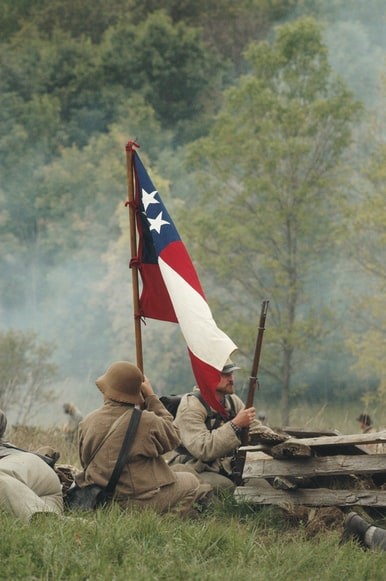This is a free essay sample available for all students. If you are looking for best essays for sale on the topic “Could the Civil War Have Been Avoided”, browse our private essay writing samples.
Known as the key event in American history that abolished slavery, the Civil War continues to be a subject of intense discussion among historians and enthusiasts. With many intricate events and plot twists leading up to the war, countless people tend to wonder if the Civil War could have been avoided.
Were the bloody battles truly inevitable? This is a question the author of this sample essay faces. He explores some notable compromises made on the road leading to the battlegrounds and answers this question.
For your own essay on the battles between the North and South or other historical topics, contact us for essay writing services. We’ll match you with an expert writer who can give you a much-needed perspective on your subject and help you finish that requirement.
Was the American Civil War Really Inevitable?
When we take a quick glance at the timeline of the American Civil War, we can clearly see a gamut of attempts to reach a peaceful middle ground amid the tension between the Northern and Southern states over the issue of slavery. In all fairness to our forefathers, we can’t say that they didn’t really try to find consensus despite a troubling atmosphere of conflict.

We have seen how these battles end and we know that it was the North that ultimately clinched the victory from the South. But as we go back to the days before the war broke out, let’s ask ourselves this question: Was the Civil War inevitable? Were there any other preventive measures that could have been done to do away with bloodshed?
Slavery was a hot topic for debate between the Northern and Southern states for hundreds of years. From the moment the system of slavery was introduced by European settlers in the 1500s, there were already dissenting voices that called for the abolition of the practice. Despite this, Southerners continued to employ the services of African slaves in their plantations, knowing that cheap labor could increase profit. They argued that using slaves was worth it because it contributed to the nation’s overall wealth.
When we consider it from their context, we can understand why manual labor was still so relevant to them. They were still using horses in their labor production, so manpower continued to be necessary. The North, however, had undergone rapid industrialization during those days, so slaves were more of a burden to them than a necessity. It was no surprise that they were against the practice.
One of the very first attempts to reach a middle ground between a polarized North and South was the 3/5ths Compromise. This was an agreement to consider every five slaves as three free men, which would impact population count, and therefore taxes and representation in Congress. This would provide a balance between the heavily-populated North, and the much-smaller South, which only had slaves to add to its number.
Another attempt at compromise was the inclusion of a fugitive slave act in the U.S. Constitution, which identified the earliest year when slavery could finally be abolished. But this still wasn’t enough to appease both sides as there were still outstanding issues on the identity and status of slaves working in new territories acquired by America.
The use of slaves in the South became more magnified during the cotton boom. The North continued to protest the issue. Slave states and free states remained at the center of many-a-debate. One trigger point was the proposal of admitting Missouri as a slave state. This led to the Missouri compromise, where balance was once again ensured by recognizing Maine as a free state alongside Missouri.
There was also the Kansas-Nebraska Act, which revoked the Missouri compromise. Enacted in 1854, it was a territorial mandate that established two new territories, namely Kansas and Nebraska, and made room for popular sovereignty.

I believe that the final turning point was during the election of Abraham Lincoln to the presidency. Upon his announcement of his intent to finally end slavery for good, 11 states seceded from the Union. Wanting to retain the Union without resorting to war, he made the fatal decision to replenish the supplies of the United States Army at Fort Sumter. This prompted an attack by the South Carolina military, which concluded with the surrender of the U.S. Army and signaled the beginning of the Civil War.
Conclusion
With all of these key events, was the Civil War an unavoidable ending to conflict? I believe that, to a certain point, more could have been done to prevent bloodshed and loss of life. Perhaps during the early beginnings of the discussions, a stronger compromise could have been made. Maybe better, calmer, and stronger leadership would have made a difference in how the discussions went. More attempts should have been made to stave off war. Maybe more efforts to set up open conversations between the North and the South could have allowed each side to view things from the perspective of the other.
However, I believe that once the secession of the 11 states transpired, there was no going back. I think that it was at the point that talk of war became a natural direction. It also didn’t help that Abraham Lincoln’s public proclamation on ending slavery rattled plenty of nerves in the Southern states. Maybe if he considered a gradual abolition of the practice, he could have gotten more Northerners and Southerners in the room to listen. Immediately dismissing the South was the breaking point where the Civil War became a near certainty.
FAQs
What are some ways you think the Civil War could have been prevented?
An abrupt announcement to end slavery eventually led to the battles. What may have caused the South to reconsider could be an open dialogue between them and the Northerners, facilitated by President Abraham Lincoln. Another possibility could be the development of stronger compromises that take into consideration all aspects of the issue so that no loopholes are found and that tensions would not return. Maybe if the South was more open to industrializing and seeing how that could work alongside agriculture, they would not be as attached to slaves as they were.
Was the Civil War avoidable or unavoidable?
The answer to this is yes and no. The war could have been avoided up to a certain point in the timeline through additional efforts to find a compromise. However, key turning points that made the battles inevitable include the election of Abraham Lincoln as president and the secession of the 11 states from the Union.